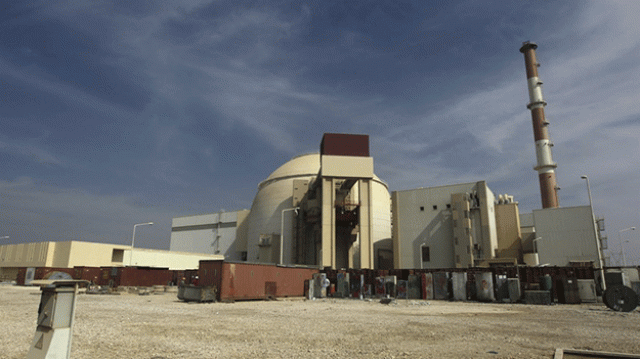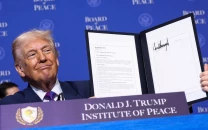With nuclear deal in sight, Iran drives harder bargain in Indian trade talks
The shift in Iran's stance has also been visible in the vital energy sector

PHOTO: ASSOCIATED PRESS
The push back from the Iranians came as a surprise to India, which has enjoyed special dispensation from Tehran as one of only a handful of countries willing to do business with it while it faced Western economic sanctions.
Under a tentative framework agreement reached between six major powers and Tehran in April, Iran agreed to limit its nuclear activity in return for sanctions relief. A final deal could be reached by June 30.
That prospect appears to have emboldened Iran, said sources familiar with trade negotiations with India, including in its handling of a sizeable deal to import railway tracks.
The $233 million contract, signed last October, was for India's State Trading Corp (STC) to facilitate exports of rail tracks from SAIL Ltd and Jindal Steel and Power Ltd to Iran's railways.
But Iran told Indian negotiators that it had offers from other countries, including Turkey, to supply the equipment at a cheaper cost, the sources said.
Last month, New Delhi sent trade secretary Rajeev Kher to persuade Tehran to adhere to the original terms, but he came back "empty handed", according to one of the sources.
"They are no longer the same Iranians that came to us last year for signing the deal," the source said. "They were polite this time, but had an upper hand in the negotiations."
India has cut the value of the deal by about 7 percent to $217 million, the sources said. They added that they worry the Iranians may seek further cuts, and could split the order with other countries.
STC chairman Rahim Khaleel declined to comment. Kher, Iran Rail, SAIL and Jindal Steel did not respond to requests for comment.
It was not immediately clear whether other countries that trade with Iran have seen a similar hardening in Tehran's stance. Oil refinery sources in Japan said they had not seen any change yet.
Wait your turn
Iran said it wanted to renegotiate the rail contract, because the euro had declined against the dollar and steel and iron ore prices had fallen significantly since the deal was first struck in 2014.
Indian negotiators said price and currency risks were incorporated into the original agreement, but they had to give in, the sources said.
It was a large order for the Indians and the specter of competition from other suppliers loomed large, they added.
"Earlier they were standing in line to offer us deals," one source said. Now, they ask the Indians to "wait in line and wait your turn."
The supply contract is expected to kick off within six months, and, under the renewed terms, India will supply 250,000 tonnes of rails to Iran over 18 months through STC.
The shift in Iran's stance has also been visible in the vital energy sector.
The National Iranian Oil Company has told Indian refiners, for example, that it would withdraw some of the discounts and free shipping it had been offering them on crude sales to maintain its oil output, oil industry sources said.
The sources added that the state oil firm anticipated ramping up exports once the nuclear deal was finalised, after which there would be many more buyers for its crude.
In 2013, the then Iranian Oil Minister Rostam Qasemi visited India to offer development rights for a gas field on a production sharing basis, after getting special permission from parliament on a deal that would normally contravene Iranian law.
India did not sign the deal for the Farzad B gas field, as international sanctions barred investment in Iran's hydrocarbon sector, an Iranian diplomat said.
Now, Tehran has withdrawn the offer, according to Iranian media. Iran plans to auction the field instead, one report said.



















COMMENTS
Comments are moderated and generally will be posted if they are on-topic and not abusive.
For more information, please see our Comments FAQ